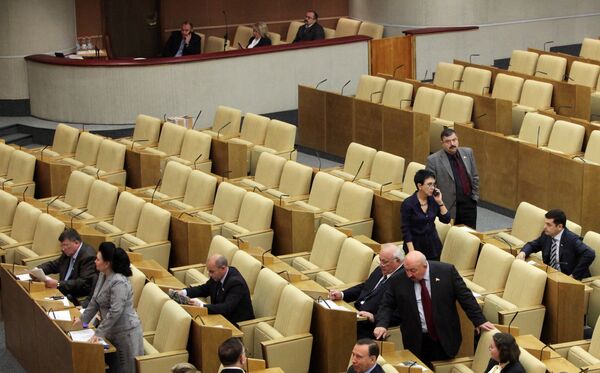The Russian parliament on Friday passed a bill giving a stronger say to small political parties in the federal and regional legislatures, responding to a call by President Dmitry Medvedev to enhance political competition in the country.
Under Medvedev's predecessor, Russia's current Prime Minister Vladimir Putin, a number of small political parties lost their seats in legislatures since then dominated by pro-Kremlin United Russia party. The Kremlin has rejected opposition accusations of backsliding on democracy, saying the new political landscape came about through free elections.
However, Medvedev said last year that his plan to modernize Russia's economy required a more flexible political environment with greater competition, and called for more breathing space to be given to smaller parties.
Under the amendments to the electoral law passed by the State Duma, parliament's lower house, candidates from parties that win over 5% in polls but fail to pass the 7% threshold needed to win seats in most regional legislatures will still enjoy some of the rights of proper deputies.
They will have the right to offer candidates for jobs nominated by regional parliaments, get documents distributed among the deputies and distribute their own documents in the legislatures.
Once a year, leaders of the political parties that fail to win seats in the federal or regional assemblies will be invited to attend one of their plenary sessions.
Another amendment, passed by the Duma in the final third reading, toughened rules for early voting in local elections - a practice opposition parties say is widely used by authorities to get desired results in any poll and thus maintain United Russia's domination. Election officials and United Russia leaders have rejected such accusations.
Under the amendment, only a limited number of voters - those who cannot turn up on the voting day because they live in remote areas or places that lack transport links - can vote up to two weeks before election day.
MOSCOW, May 14 (RIA Novosti)


